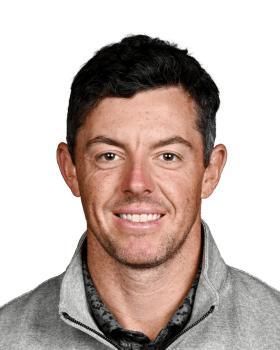Rory McIlroy’s Critique of YouTube Golf: A Controversial Discussion
Recently, Rory McIlroy has sparked a lively debate within the golfing community with his critical remarks about the influence of YouTube golf content. During an interview, he expressed concerns regarding the quality and reliability of advice offered by online personalities in the sport. His comments have led to a mix of support and backlash from various corners, including responses from popular figures like Robby Berger.
The Impact of McIlroy’s Comments on Professional Golf
McIlroy’s critique has ignited discussions about the potential risks associated with online golf instruction. He pointed out that some advice shared on these platforms could lead to poor swing mechanics and ineffective course management strategies, which may undermine fundamental golfing principles.
In defense, several prominent figures from the YouTube golf community have responded by highlighting how their accessible content can provide valuable insights for younger audiences eager to learn the game. One notable creator remarked that while they respect McIlroy’s expertise, their approach encourages creativity and adaptability among players.
This ongoing dialogue reveals a significant divide in golfing philosophies: traditionalists like McIlroy advocate for rigorous training based on technical skills, while modern influencers promote a more inclusive approach to learning golf.The outcome of this controversy may reshape relationships between established professionals and emerging digital creators in the sport.
Diverse Reactions from Fans and Critics
The reactions to McIlroy’s comments have been varied:
- Support for McIlroy: Many fans resonate with his viewpoint that simplifying golf through platforms like YouTube undermines its complexities.
- Criticism for Elitism: Others accuse him of elitism, arguing he overlooks how these platforms enhance accessibility and engagement for broader audiences.
- A Mixed Bag: Some commentators believe both professional play and online content can coexist harmoniously to enrich golfers’ experiences across demographics.
This discourse has turned social media into a battleground where contrasting viewpoints are passionately defended. Advocates for maintaining conventional values often cite concerns over authenticity in sports media consumption as central themes in this debate.
The Influence on aspiring golfers
The implications stemming from McIlroy’s critique are profound for aspiring golfers who might find themselves at a crossroads regarding whom to trust as credible sources for instruction. By emphasizing discrepancies between conventional coaching methods and popular online advice, he encourages young players to critically assess their information sources—fostering deeper understanding rather than relying solely on surface-level tips found online.
This call-to-action also extends towards coaches who must adapt their teaching methodologies amidst evolving trends while ensuring foundational skills remain paramount. Coaches embracing this duality will likely maintain relevance within an increasingly digital landscape while better preparing students for modern challenges in golf.
The Future Landscape of Golf Instruction
The recent exchanges surrounding Rory McIlroy’s critiques signal broader conversations about future directions in both golf instruction and player advancement. As technology continues reshaping how knowledge is disseminated—through tools such as data analytics or virtual reality—the nature of learning is rapidly evolving beyond traditional one-on-one lessons into collaborative environments where players share insights freely across platforms like YouTube.
Mental resilience is also gaining recognition alongside physical skill development within training regimens; programs focusing on cultivating focus, confidence, and tournament readiness are becoming essential components aimed at producing well-rounded athletes capable not only physically but mentally thriving under competitive pressures encountered during play..
the intersection between traditional sports practices
and digital media continues shaping discussions around authenticity,
engagement,
and professionalism.
As we observe how Rory
Mc Il roy ‘s remarks influence interactions among professional golfers
and emerging content creators,
it becomes clear that navigating this new landscape will be crucial
for all stakeholders involved.









